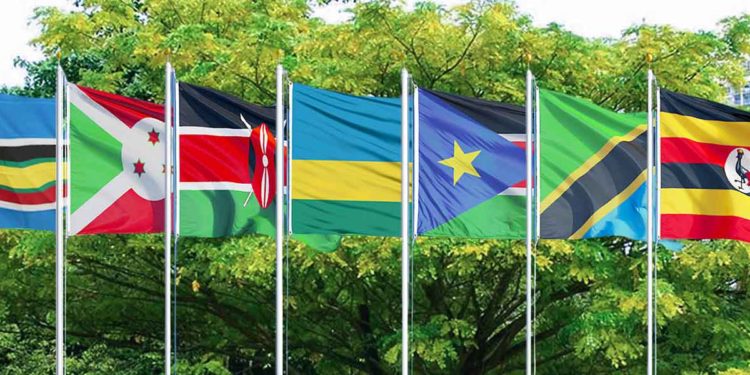The East African Community (EAC) Council of Ministers has finally adopted the 2020/2021 budget estimates that MPs described as progressive when they debated the motion late June this year.
The Council, at its 41st Extra-Ordinary Meeting held via Video-Conferencing adopted the US$97.6 million budget that will cater for the three EAC organs and institutions’ recurrent and development expenditure for the current financial year, which runs from 1st July, 2020 to 30th June, 2021.
Of the total amount, US$55.6 million will come from EAC Partner States while fevelopment partners will contribute US$41.9 million, EAC secretariat said in a press release.
The EAC organs are the EAC Secretariat, East African Legislative Assembly and East African Court of Justice while the Institutions are the: Lake Victoria Basin Commission; Lake Victoria Fisheries Organization; Inter-University University Council for East Africa; East African Kiswahili Commission; East African Health Research Commission; East African Science and Technology Organization, and the East African Competition Authority.
The Council further approved the 2020/2021 financial year expenditure budget estimates of US$2.7 million for the Civil Aviation Safety and Security Oversight Agency (CASSOA).
” The Chairperson of the Council, Hon. Dr. Vincent Biruta, who is also Rwanda’s Minister for Foreign Affairs, Cooperation and East African Community, is now expected to table the 2020/2021 budget estimates before the East African Legislative Assembly for debate and approval anytime this month,” the statement said.
During the FY 2020/2021, the Community will focus on seven key global priority areas, namely: Consolidation of the Single Customs Territory(SCT) to cover all imports and intra-EAC traded goods, including agricultural and other widely consumed products; Infrastructure Development in the region.
Others include enhancing free movement of all the factors of production and other areas of cooperation across the Partner States as envisaged under the Common Market and Monetary Union Protocols, and enhancement of regional industrial development through investment in key priority sectors, skills development, technological advancement and innovation to stimulate economic development.
Also, other key priority areas include: Improvement of agricultural productivity, value addition and facilitation of movement of agricultural goods to enhance food security in the region; Promotion of regional peace, security and good governance; and institutional transformation at the regional and Partner State levels.
The Council also renewed the contracts of 25 members of Professional Staff in the EAC organs and institutions who were appointed in 2015 and whose contracts have since expired or were due to expire by the end of August 2020 for a final term of five (5) years in accordance with the provisions of the EAC Staff Rules and Regulations (2006).
The Council further approved the issuance of new contracts for short term staff for a period of six months from 1st July to 31st December, 2020.
Besides Dr. Biruta, the one-day meeting was attended by Partner Ministers of EAC Affairs, namely: Hon. Adan Mohammed (Kenya); Hon. Amb. Ezechiel Nibigira (Burundi); Hon. Deng Alor Kuol (South Sudan); Hon. Maj. Gen. (Rtd) Kahinda Otafiire (Uganda), and; Hon. Dr. Damas Ndumbaru (Deputy Minister for Foreign Affairs and East African Cooperation, Tanzania).
Also in attendance was the EAC Secretary General, Amb. Liberat Mfumukeko, and his two Deputies; Eng. Steven Mlote (DSG-Infrastructure and Planning, also the Acting DSG-Finance and Administration) and Hon. Christophe Bazivamo (DSG-Productive and Social Sectors).
The EAC Budget was presented to the House in June this year by the Deputy Minister for Foreign Affairs and East African Cooperation, United Republic of Tanzania, Hon Dr Damas Ndumbaro amounting to USD111.
The EAC Budget is anchored under the theme: “Transforming lives through Industrialization and Job Creation for shared prosperity.” This theme properly fits in the Covid 19 pandemic, which has ravaged the region’s economies.
In addition, the EAC will prioritise the promotion of good governance and the constitution making process for the EAC Political Confederation, factors that will be necessary for successful implementation of socio-economic programmes to further support the growth and development of the EAC region.
While the resource envelope has not increased for the last four years (with Partner State contributions remaining constant), the EAC has witnessed a remarkable growth in terms of institutions territorial jurisdiction and volume of activities. However, this growth has not attracted a proportionate increase in funding to address the ever- growing needs of the Community.
‘In this budget, save for about two institutions, the rest of the organs and institutions witnessed a zero increase or decrease of their respective budgets”, the MPs noted in June.
The community has been facing funding challenges in the past few years. In 2013/14, the contribution by Partner States was pegged at 94% by the end of the Financial Year, 87.5% in 2014/2015 and 70.5% in the Financial Year 2015/2016. In the Financial Year 2016/17, the Community received a total of 79% of the total budget while 65% was received during 2017/2018. During 2018/2019, only 59% of the budget estimates has so far been received.
“There is evidence of decline in contributions. This is why we continue to face the hardship of unavailability to meet some of the programmes. Departmental budgets are minimal while committee budgets are also shrinking against an increasing workload. We should as MPs face the reality,” Hon Eng Mohammed Mnyaa, the told assembly member during the June budget debate.





